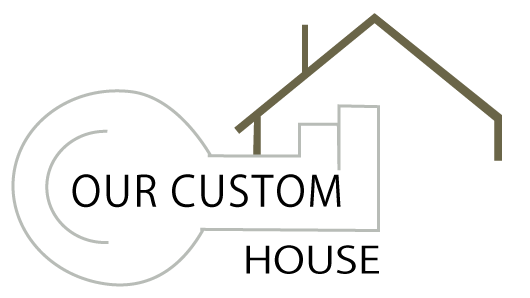Constructing a personalized home is an enjoyable undertaking that enables you to design an area catered to your individual requirements and inclinations. However, it requires careful planning and the right materials to ensure the structure is durable, functional, and aesthetically pleasing. This guide provides an overview of the essential materials needed for custom home construction.
Knowing the materials needed for building a custom house is crucial for several reasons. Firstly, it ensures the structural integrity and longevity of the home, as the right materials will provide durability and safety. Secondly, it allows for accurate budgeting and cost management, preventing unexpected expenses and ensuring the project stays within financial limits. Thirdly, understanding material requirements facilitates better planning and scheduling, ensuring that construction progresses smoothly and efficiently. Additionally, it enables informed decision-making regarding sustainability and environmental impact, allowing for the selection of eco-friendly options. Overall, having a comprehensive understanding of the necessary materials is essential for a successful, cost-effective, and high-quality custom home construction project.
Foundation Materials
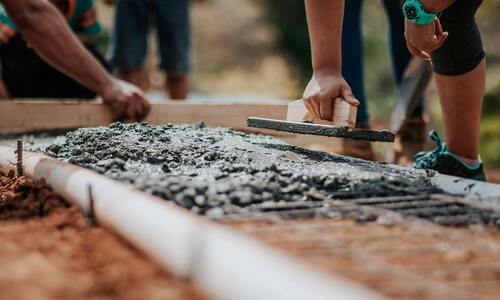
Since it provides support for the entire building, the foundation is the most important component. The materials used for the foundation must be strong and durable.
Concrete
- Type: Ready-mix or pre-cast
- Use: Forms the base of the foundation, including footings, slabs, and walls
- Advantages: Strong, durable, and resistant to fire and water damage
Steel Rebar
- Type: Various sizes and grades
- Use: Reinforces concrete, providing additional strength
- Advantages: Increases tensile strength and durability
Waterproofing Membrane
- Type: Liquid-applied or sheet membrane
- Use: Protects the foundation from moisture and water infiltration
- Advantages: Prevents water damage and mold growth
Framing Materials
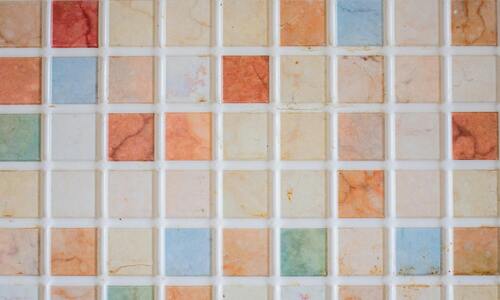
The framing provides the skeleton of the house, defining its shape and structure.
Lumber
- Type: Dimensional lumber (e.g., 2x4s, 2x6s)
- Use: Constructs the framework for walls, floors, and roof
- Advantages: Readily available, easy to work with, and cost-effective
Engineered Wood Products
- Type: Plywood, oriented strand board (OSB), laminated veneer lumber (LVL)
- Use: Subfloors, wall sheathing, and roof decking
- Advantages: Strong, stable, and resistant to warping
Steel Studs
- Type: Light-gauge steel
- Use: Alternative to wood framing, especially in commercial buildings
- Advantages: Non-combustible, resistant to termites, and lightweight
Insulation Materials
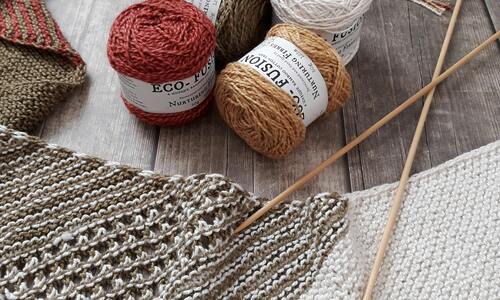
For both comfort and energy efficiency, proper insulation is essential.
Fiberglass
- Type: Batts or blown-in
- Use: Insulates walls, floors, and attics
- Advantages: Cost-effective, easy to install, and non-flammable
Spray Foam
- Type: Closed-cell or open-cell
- Use: Seals gaps and insulates hard-to-reach areas
- Advantages: High R-value, air sealing properties, and moisture resistance
Rigid Foam
- Type: Extruded polystyrene (XPS), expanded polystyrene (EPS)
- Use: Exterior walls, foundations, and roofs
- Advantages: High insulation value, moisture resistance, and durability
Exterior Materials
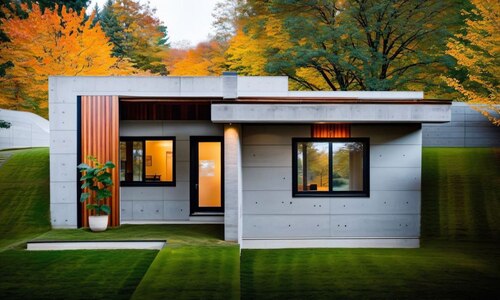
The exterior materials protect the house from the elements and contribute to its appearance.
Siding
- Type: Vinyl, wood, fiber cement, stucco, brick
- Use: Covers the exterior walls
- Advantages: Variety of options for durability, aesthetics, and maintenance requirements
Roofing
- Type: Asphalt shingles, metal, tile, slate
- Use: Covers the roof
- Advantages: Options for longevity, appearance, and weather resistance
Windows and Doors
- Type: Wood, vinyl, aluminum, fiberglass
- Use: Provides natural light, ventilation, and access
- Advantages: Energy-efficient options, various styles, and security features
Interior Materials
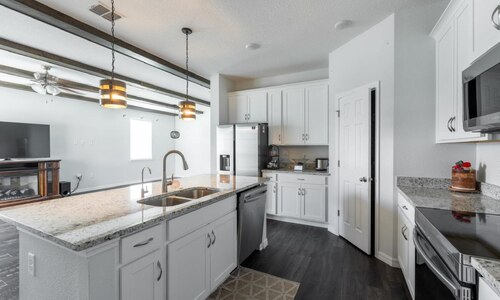
The interior materials contribute to the functionality and aesthetics of the home’s living spaces.
Drywall
- Type: Standard, moisture-resistant, fire-resistant
- Use: Covers walls and ceilings
- Advantages: Smooth finish, easy to paint, and fire-resistant options available
Flooring
- Type: Hardwood, laminate, tile, carpet, vinyl
- Use: Covers floors
- Advantages: Variety of options for durability, aesthetics, and comfort
Cabinetry and Countertops
- Type: Wood, laminate, solid surface, stone
- Use: Kitchen and bathroom storage and work surfaces
- Advantages: Customizable options for functionality and style
Plumbing and Electrical Materials
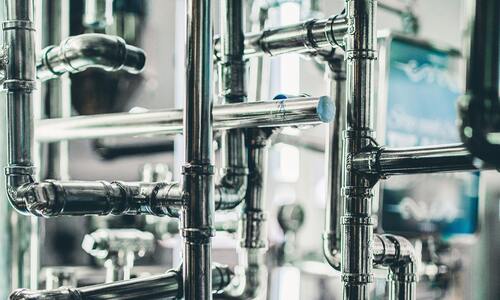
These materials are essential for the house’s functionality and safety.
Pipes
- Type: PVC, PEX, copper
- Use: Water supply and drainage
- Advantages: Options for durability, flexibility, and corrosion resistance
Wiring
- Type: Copper or aluminum wiring
- Use: Electrical circuits
- Advantages: Conductivity, safety, and code compliance
Fixtures
- Type: Faucets, sinks, toilets, light fixtures, outlets
- Use: Plumbing and electrical endpoints
- Advantages: Essential for functionality and available in various styles
Building a custom house requires a thorough understanding of the materials needed for each construction phase. From the foundation to the finishing touches, selecting the right materials ensures your home is durable, efficient, and tailored to your personal style. Careful planning and informed choices will help you build the home of your dreams.
Come along with us as we build the house of your dreams. We develop dreams, not just houses, with The Owning Your House Team and Ultramodern Development Group.
Contact us right now to learn more and to schedule a free appointment to witness the difference.
*Areas we Serve:
– Florida
– North Carolina
– Georgia
– South Carolina
– Tennessee
*Interested in knowing more about Our Custom House? check out our blog
*Start building your bardominium now by clicking here, or contact us
